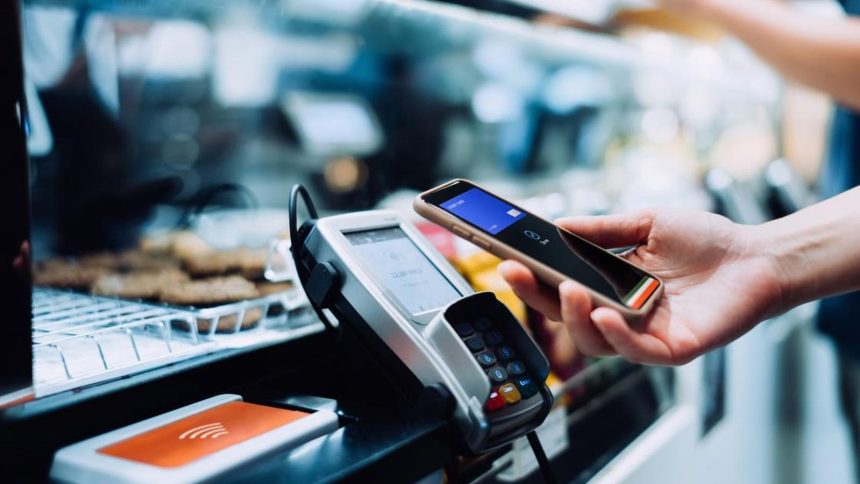The Dawn of AI-Powered Personalization and Experiential Dining:
The QSR landscape of 2025 is undergoing a profound transformation, driven by the convergence of technological advancements and shifting consumer expectations. No longer content with mere speed and affordability, today’s discerning diners crave personalized, convenient, and engaging experiences that transcend the traditional fast-food model. Artificial intelligence (AI) is emerging as a pivotal force, enabling QSRs to tailor menus, optimize operations, and enhance customer interactions in unprecedented ways. However, as Milton Molina of Marco’s Pizza cautions, the true potential of AI lies in its practical application, not just the hype surrounding it. Strategic implementation focused on tangible benefits, such as dynamic menu boards that adapt to inventory and customer preferences, will separate the successful AI adopters from those lost in the technological maze. The future belongs to QSRs that leverage AI as a "force multiplier" to elevate the customer journey.
Simultaneously, the physical space of QSRs is undergoing a metamorphosis, evolving from functional eateries into immersive experiential destinations. Scott Snyder of Bad Ass Coffee of Hawaii emphasizes the rise of the "prosumer," a quality-conscious and highly engaged consumer who demands more than just a quick meal. Inspired by the “fourth wave” of coffee culture, brands are embracing architectural innovations, locally inspired designs, and open kitchens to create unique, memorable environments. This shift towards experiential dining caters to the prosumer’s desire for authenticity and connection, transforming QSRs into destinations that offer an elevated sense of place and purpose. As inflation cools, this strategic blend of affordability and unparalleled quality positions brands to capture customer loyalty and drive sustained growth.
Data-Driven Loyalty and the Global Flavor Renaissance:
The concept of customer loyalty is undergoing a radical reinvention, fueled by the power of data and personalized engagement. Jim Holthouser of GoTo Foods highlights the importance of a "four-wall" strategy that seamlessly integrates digital and in-store interactions to create a holistic customer experience. Data-driven insights empower QSRs to understand individual preferences, enabling targeted messaging and personalized offers that resonate with each customer. McAlister’s Club MCA, with its successful beta test of a personalized loyalty program, exemplifies the potential of this approach to elevate guest satisfaction and drive tangible results. The future of loyalty lies in a 360-degree view of the customer, leveraging data to foster deeper engagement and long-term relationships.
Meanwhile, the QSR menu is experiencing a global flavor explosion, driven by adventurous consumers seeking bold and authentic culinary experiences. Gregg Majewski of Craveworthy Brands emphasizes that this trend transcends fleeting fads, reflecting a broader cultural shift towards culinary exploration. Limited-time offerings (LTOs) featuring Korean barbecue tacos, Middle Eastern shawarma, and other globally inspired dishes are captivating diners’ palates and creating a sense of urgency. Strategic partnerships with culinary experts further elevate the quality and authenticity of these offerings, positioning brands to stand out in a crowded marketplace. The QSR menu of tomorrow will be a passport to global flavors, offering a diverse and exciting culinary journey for adventurous diners.
Embracing Flexibility and the Rise of the All-Day Destination:
The traditional boundaries of dining times are dissolving as QSRs adapt to the evolving needs of their customers. Mike Sebazco of Famous Toastery notes the growing popularity of all-day dining options, with concepts like breakfast at night and after-hours events becoming increasingly mainstream. This flexibility caters to the demands of today’s busy lifestyles, transforming QSRs into versatile destinations that cater to every occasion. Simultaneously, transparency and wellness are taking center stage, with brands embracing ingredient transparency while continuing to offer indulgent and flavorful options. Technology plays a crucial role in streamlining operations and personalizing guest experiences without sacrificing the human touch. By embracing flexibility and prioritizing guest preferences, QSRs are evolving into all-occasion destinations that foster brand loyalty and accessibility.
Technological Advancements and the Future of Fast Dining:
Finally, the increasing use of technology in QSRs isn’t limited to personalized interactions and enhanced customer experiences. Ron Naples, Associate Adjunct Professor at New York University, highlights the growing role of automation in addressing rising labor costs. Robotic cooking systems, kiosk ordering, and automated food preparation processes are becoming increasingly prevalent, streamlining operations and enhancing efficiency. While concerns about the impact on human labor remain, these technological advancements offer a potential solution to managing costs while maintaining speed and consistency. The QSR of the future will likely feature a blend of human and automated elements, optimizing operations to deliver a seamless and cost-effective dining experience. As the industry navigates the delicate balance between innovation and practicality, the QSR of 2025 and beyond promises a dynamic and exciting landscape for both brands and consumers.



